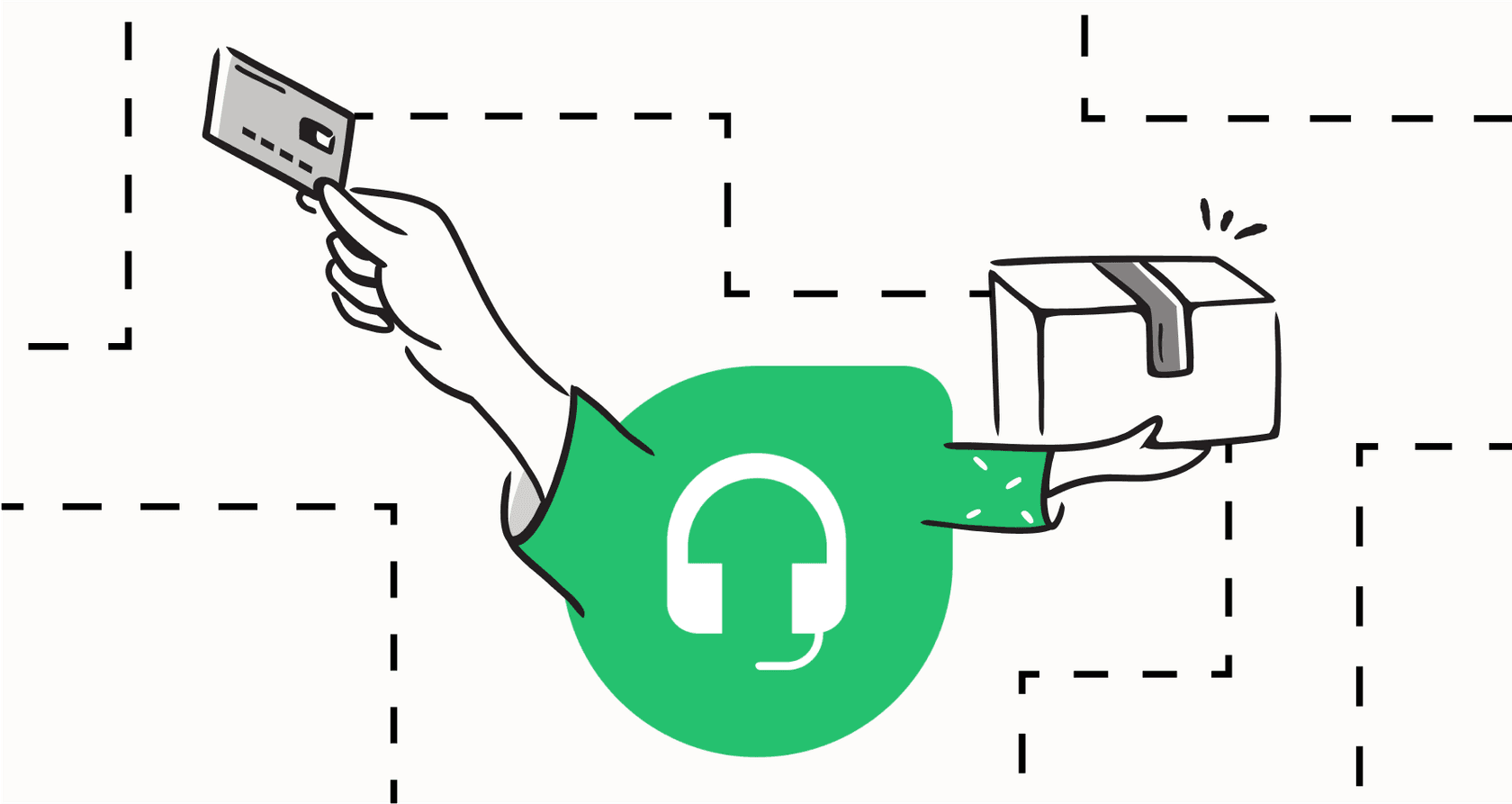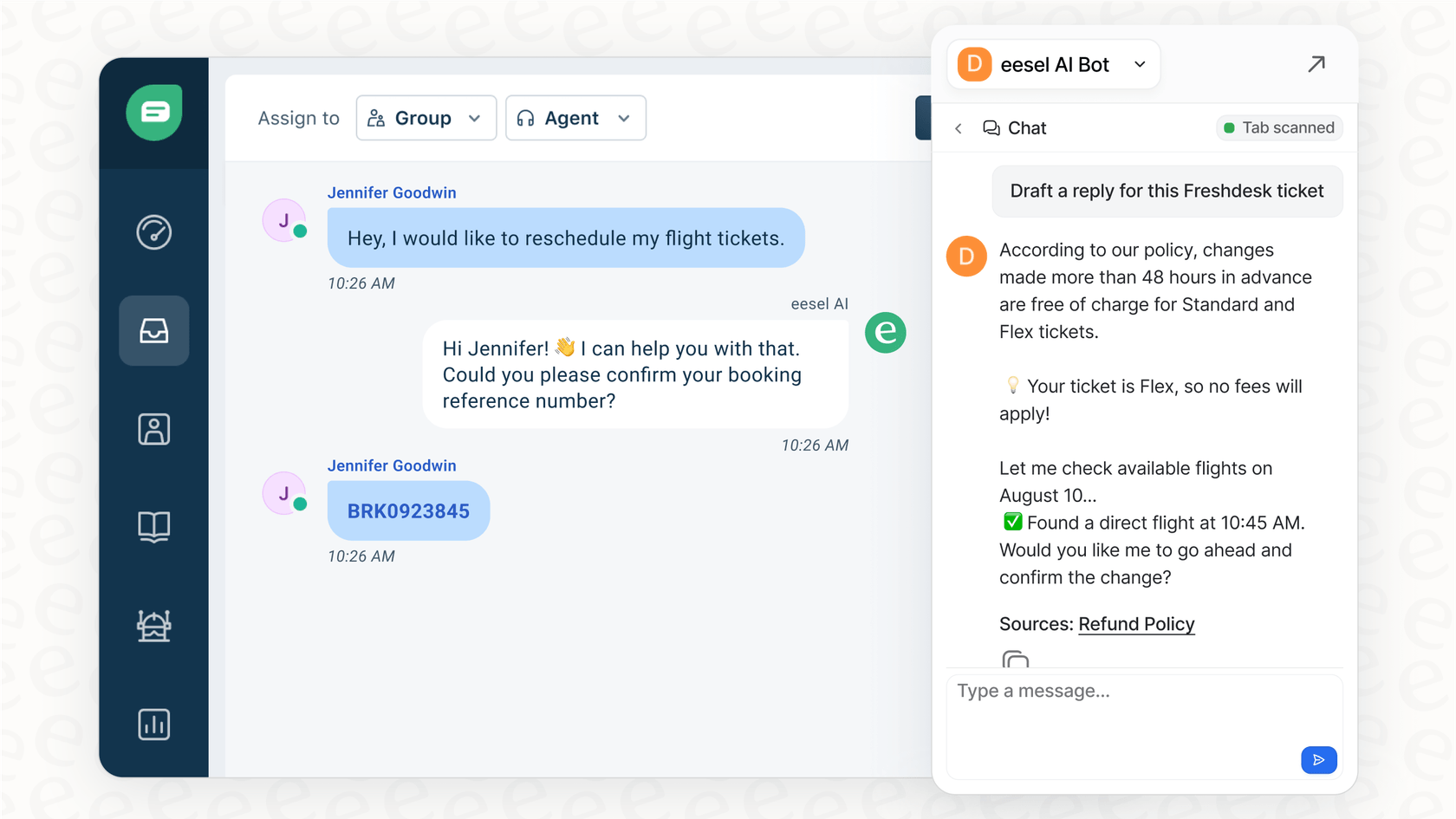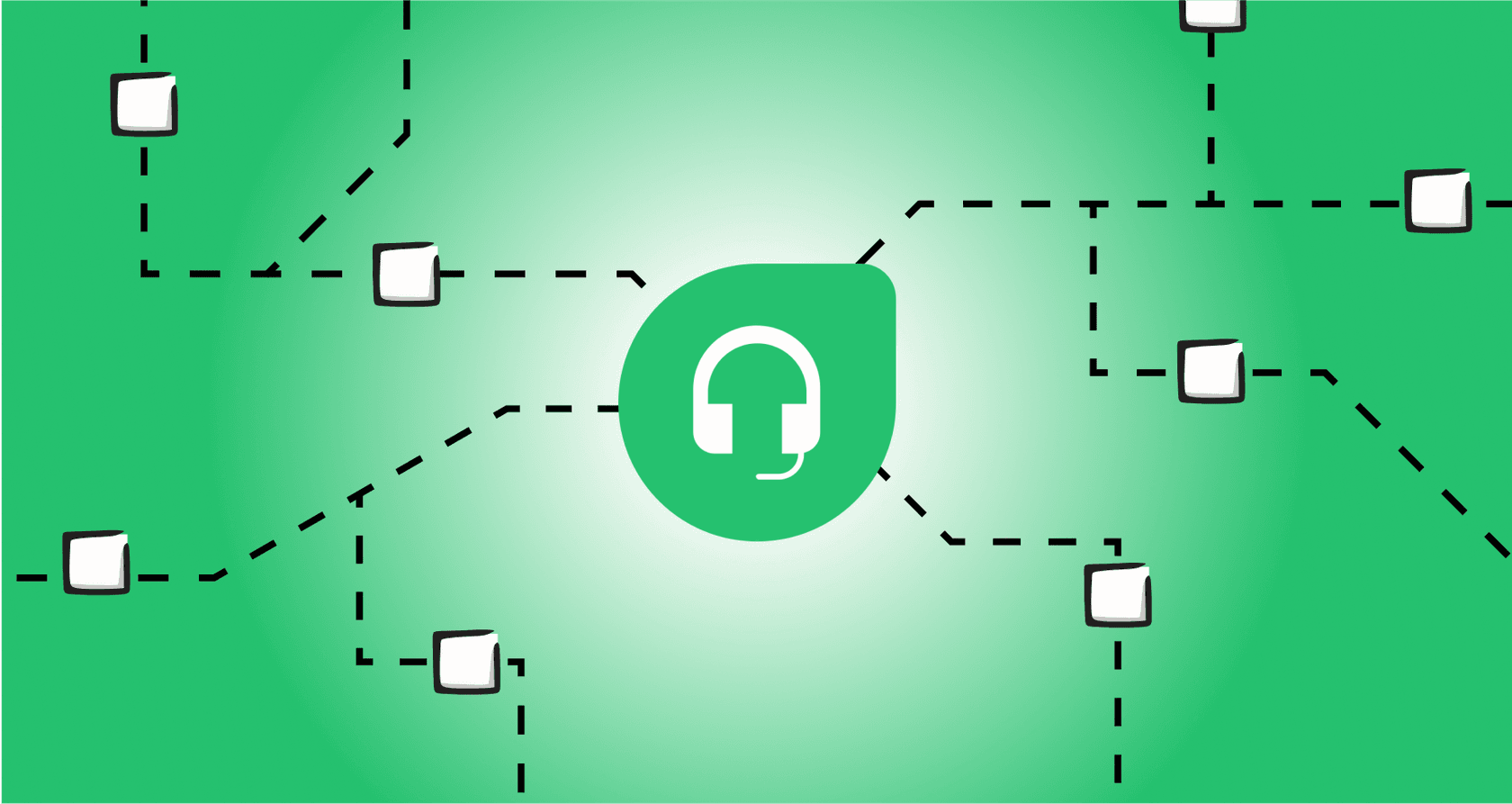A complete guide to the Freshdesk supervisor role and rules

Kenneth Pangan

Stanley Nicholas
Last edited January 16, 2026
Expert Verified

If you're using Freshdesk to manage customer support, you've definitely seen the term "Supervisor" pop up. It's a popular and reliable helpdesk, especially for growing businesses, but this specific term can be a bit confusing. That’s because it actually refers to two different things: a user role for team managers and an automation feature for handling tickets.
Getting these two concepts straight is the key to managing your team's performance and scaling your support efficiently.
In this guide, we'll break down both the Freshdesk supervisor role and the Supervisor rules. We'll cover what they can do, how to get the most out of them, and how you can layer in modern AI to make them so much more powerful.
What is a Freshdesk supervisor?
Let's clear this up right away. When people talk about a "Freshdesk supervisor," they could mean one of two things. Understanding both is the first step to really getting a handle on your helpdesk workflows.
The Freshdesk supervisor role
First up is the user role. In Freshdesk, a Supervisor is a default permission level that sits right between a standard Agent and an Administrator. Just think of them as team leads.
According to Freshdesk's own documentation, supervisors have a specific set of permissions. They can view, respond to, and assign tickets just like an agent, but they also get to generate reports on team performance and manage ticket assignment for the groups they oversee.
Here’s a quick rundown of how the default roles stack up:
-
Agent: This is your frontline team. They handle the day-to-day work of viewing, responding to, and resolving tickets. They have no admin access.
-
Supervisor: This is the team lead. They have all the agent permissions, plus the ability to run reports and manage their specific group.
-
Administrator: They're in charge of configuring the helpdesk itself, from workflows to automations. They can't touch billing, though.
-
Account Admin: This role has the keys to the entire kingdom, with full access to everything, including billing and account management.
Freshdesk supervisor rules
The other side of the coin is "Supervisor Rules." These are time-based automations that run in the background. Their whole job is to perform actions on tickets after a certain amount of time has passed without any updates.
You’ve probably seen these in action before. Common examples include:
-
Automatically closing a ticket if a customer hasn't replied in 72 hours.
-
Sending a gentle nudge to a customer who has gone quiet.
-
Escalating a ticket to a manager if it's been open for too long and is about to breach its SLA.
Managing your team as a Freshdesk supervisor
The person with the Supervisor role is the backbone of a support team. They're on the front lines of quality control, spending their days monitoring ticket queues, making sure SLAs are met, and coaching agents to deliver better service.
Core capabilities and considerations for the Freshdesk supervisor
The role gives team leads the tools they need to manage their direct reports, providing a clear structure for oversight.
Supervisors can jump into Freshdesk's analytics to track key metrics for their team, like first response time, overall resolution time, and customer satisfaction (CSAT) scores. They also have the power to manually assign tricky tickets to the right agent or just make sure the "unassigned" queue stays empty. And by reviewing conversations, they can spot coaching opportunities and ensure everyone is using a consistent brand voice.
There are some considerations to keep in mind. The default roles provide a great foundation, and for teams needing even more flexibility, Freshdesk offers custom roles. This feature, available on the Pro and Enterprise plans, allows you to tailor permissions specifically, such as giving a supervisor permission to edit knowledge base articles while keeping other settings centralized.
As a team grows from 5 agents to 50, a supervisor can benefit from tools that help automate the manual review process. Using automation and AI can help ensure quality remains high across a larger volume of tickets.
Augmenting the Freshdesk supervisor with AI
This is where AI can really help, acting as a force multiplier for your human supervisors. Imagine an AI assistant that helps every agent draft perfect, on-brand replies by learning from your best historical conversations. Suddenly, the process of review and correction becomes much more efficient.
This is exactly what a tool like eesel AI does. Its AI Copilot plugs directly into Freshdesk and learns from your past tickets. It helps new hires perform like seasoned pros from day one, which frees up your supervisors to focus on high-level strategy and coaching.

Automating workflows with Freshdesk supervisor rules
Now for the automation side of things. Supervisor rules are Freshdesk's go-to tool for managing tickets based on time. They run on a schedule, usually every hour, and check all your tickets to see if any of them meet a specific time-based condition you've set up.
For example, you can easily create a rule that says, "If a ticket has been 'Waiting on Customer' for more than 48 hours, send them a reminder email."
Common use cases and considerations for supervisor rules
These rules are handy for basic housekeeping and maintaining a steady workflow.
They’re great for chasing down customers who haven't provided enough information, auto-closing tickets that have been resolved, or re-opening tickets when a customer replies after a week of silence.
One nuance to keep in mind is how these rules interact with business hours. As noted on the Freshdesk community forums, rules based on business hours require careful setup to ensure they trigger as intended over weekends. With proper configuration, you can ensure customers receive timely updates without excessive notifications.
The actions a rule can perform are focused on core tasks like adding a tag, changing a status, or sending a templated email. For teams needing more complex, content-aware actions, pairing these rules with AI tools can provide a more nuanced approach.
How modern AI enhances supervisor rules
While Supervisor rules provide a solid foundation for time-based automation, modern AI offers a smart way to add further intelligence to your workflows. Instead of just checking how much time has passed, an AI-powered system can read and understand the ticket, figure out what the customer needs, and then suggest the best action.
This is the core advantage of eesel AI's AI Agent. It works alongside your existing setup, analyzing the actual content of the ticket. You can tell it to only handle specific types of tickets, like "order status" questions, and define custom actions for it to take, like looking up shipping details in your Shopify store before responding. This level of intelligence complements Freshdesk's native rules perfectly.
Freshdesk supervisor: Pricing and plans
Your ability to use supervisor-related features in Freshdesk, especially custom roles, depends on which pricing plan you're on. According to Freshdesk's official pricing page, here’s how the plans break down in 2026.
The Free plan ($0 for up to 10 agents) gives you basic ticketing and a knowledge base.
The Growth plan ($15 per agent/month) is where you first get access to automation rules, including the Supervisor rules.
To get custom roles and permissions, you'll need to use the Pro plan ($49 per agent/month). This tier also adds advanced reporting and round-robin routing.
Finally, the Enterprise plan ($79 per agent/month) adds features like skill-based routing and a sandbox environment for testing.
So, any team that needs fine-grained control over what their supervisors can do will find the Pro plan or higher to be a great fit. It's also worth noting that Freshdesk's own AI, the Freddy AI Copilot, is an add-on available for $29 per agent, per month on top of the Pro or Enterprise plan fees.
Beyond the Freshdesk supervisor: Supercharge your team with eesel AI
While Freshdesk is a solid helpdesk, its built-in tools for supervision and automation can be further enhanced as your team grows. You don't have to switch platforms to gain more advanced capabilities.
Here's how eesel AI works within the Freshdesk ecosystem to help your team:
-
Get started in minutes. You can connect eesel AI to your Freshdesk account with ease and start setting it up yourself right away.
-
Unify your knowledge. eesel AI learns from your help center and connects to all the places your team's knowledge lives, including Confluence, Google Docs, Notion, and your history of past ticket conversations. This allows it to give comprehensive answers that help your supervisors save time.
-
Test with confidence. eesel AI includes a simulation mode. You can test your AI on your historical tickets to see exactly how it would have responded, giving you the confidence to launch.
-
Transparent pricing. With eesel AI, you pay a flat, predictable fee based on usage. This makes it easy to scale your support without worrying about unpredictable costs.
From Freshdesk supervisor to strategist
The Freshdesk supervisor role is crucial for managing your team, and Supervisor rules give you a reliable toolkit for time-based automation. Both provide a strong foundation for your support operations.
By integrating a complementary AI layer like eesel AI, you can help your supervisors be even more efficient. They can shift their focus from routine ticket management to becoming proactive strategists, concentrating on complex customer issues and long-term improvements to the customer experience, while AI handles the repetitive work.
Take the next step
Ready to see how AI can transform your Freshdesk workflows? Start your free eesel AI trial and see how you can enhance your frontline support in just a few minutes.---
Frequently asked questions
The term "Freshdesk supervisor" can refer to two distinct things: a user role for team leads and a set of time-based automation rules. Understanding both is key to effective helpdesk management.
Individuals in the Freshdesk supervisor role act as team leads. They can view and respond to tickets, manage assignments for their groups, and generate reports on team performance.
Freshdesk supervisor rules are time-based automations that run periodically, usually hourly. They check tickets for specific conditions based on elapsed time without updates and then perform predefined actions, like sending reminders or closing tickets.
Supervisor rules are effective for time-based tasks as they check tickets for specific conditions based on elapsed time. For more nuanced, content-based actions, teams often pair them with AI tools.
As teams expand, it becomes important for a Freshdesk supervisor to leverage tools that help maintain quality control and provide consistent coaching. Automation helps supervisors stay focused on high-level strategy as the volume of tickets increases.
AI can act as a force multiplier for a Freshdesk supervisor, automating repetitive tasks, providing intelligent content-based responses, and helping agents draft replies. This frees supervisors to focus on strategy and complex coaching opportunities.
While Supervisor rules are available starting with the Growth plan, custom roles and permissions for the Freshdesk supervisor role are available on the Pro and Enterprise Freshdesk plans.
Share this post

Article by
Kenneth Pangan
Writer and marketer for over ten years, Kenneth Pangan splits his time between history, politics, and art with plenty of interruptions from his dogs demanding attention.




